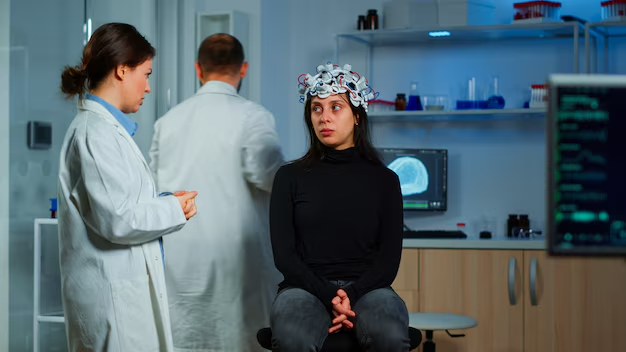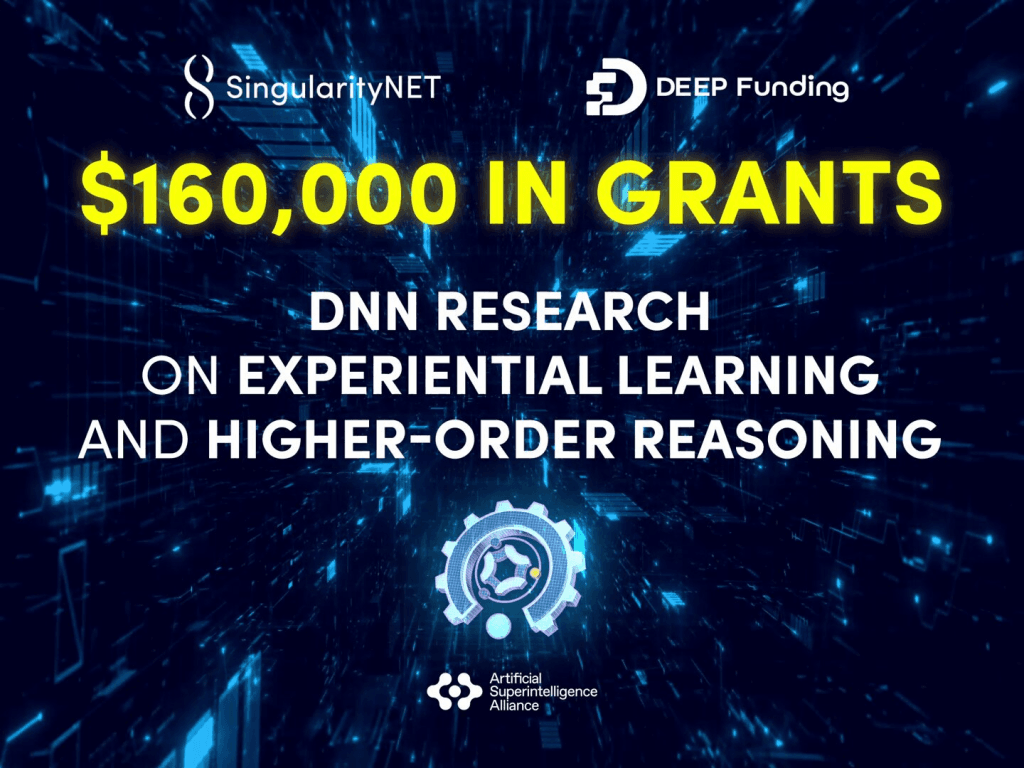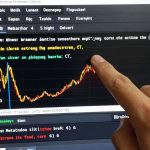SingularityNET has launched a $160,000 grant initiative to support research into neuro-symbolic deep neural networks (DNNs) that enhance experiential learning and higher-order reasoning in AI. Grants of up to $100,000 per proposal are available, with a submission deadline of 14 May 2025. The initiative focuses on integrating symbolic logic using frameworks like PyNeuraLogic and Kolmogorov Arnold Networks (KANs) into AI systems such as GNNs and LLMs, improving reasoning, interpretability, and learning from limited data.

This call for proposals focuses on the development of AI systems that combine symbolic logic with deep learning techniques. It encourages the exploration of advanced neuro-symbolic frameworks such as PyNeuraLogic and Kolmogorov Arnold Networks (KANs), and how these can improve the reasoning ability of models like graph neural networks (GNNs) and large language models (LLMs).
A particular emphasis is placed on integrating logic rules derived from systems such as Autonomous Intelligent Reinforcement Interpreted Symbolism (AIRIS) and user-supplied symbolic logic into AI architectures. The goal is to enhance decision-making processes and reasoning performance in AI models.
Purpose and Scope
The main aim of the Request for Proposals (RFP) is to explore the application of neuro-symbolic DNNs within the PRIMUS cognitive architecture. Proposals should address how symbolic logic—either autonomously generated through environmental interaction (as in AIRIS) or manually defined by humans—can be embedded into neural models.
The RFP highlights two primary areas of interest:
Experiential Learning: Developing methods to incorporate logic rules generated from an agent’s environment-based interactions.
Higher-Order Reasoning: Applying symbolic rules provided by users to perform abstract and hierarchical reasoning tasks.

Key Objectives and Outcomes
The initiative sets out the following objectives:
Improved Reasoning Abilities: Strengthening the reasoning capacity of AI systems through the integration of symbolic logic into deep learning models.
Increased Interpretability: Enhancing the transparency and explainability of AI systems by embedding symbolic knowledge, making their processes easier to understand.
Learning from Limited Data: Enabling AI systems to learn effectively from smaller datasets by leveraging structured symbolic logic—particularly useful in sectors where high-quality data is scarce, such as healthcare.
Technical Framework
Applicants are expected to work with the following technologies:
PyNeuraLogic: A framework combining logic programming with deep learning, particularly for GNN-based tasks. It enables the use of symbolic logic in structured data environments.
Kolmogorov-Arnold Networks (KANs): An alternative to conventional neural networks, using learnable activation functions on edges. KANs are suitable for integrating both continuous and discrete data and offer an interpretable structure.
Evaluation Criteria
Proposals will be assessed on the following:
Alignment with RFP Goals: Relevance to the outlined objectives, particularly in enhancing AI reasoning.
Research Background: Preference will be given to teams with prior work in neuro-symbolic AI or related domains.
Team Competency: Demonstrated skills and experience of the team in executing similar projects.
Cost Effectiveness: Clear budgeting and efficient use of grant funds.
Timeline: Inclusion of a structured timeline with defined milestones for project completion.
How to Participate
To apply for the SingularityNET grant, follow these steps:
Review the RFP: Ensure a thorough understanding of the objectives, scope, and technical requirements.
Prepare a Proposal: Outline a detailed plan including research objectives, team experience, methodology, and a proposed timeline. Include a budget between $40,000 and $100,000.
Submit Your Proposal: Upload your application via the official SingularityNET submission platform before 14 May 2025.
Use Available Resources: Access support through study group sessions, technical documentation, and community platforms like Mattermost. Resources include GitHub repositories for PyNeuraLogic and AIRIS.
Collaborate with Others: Engage with other research teams and participate in scheduled study calls to refine your proposal.
SingularityNET provides ongoing assistance to applicants through educational resources and technical support. Guidance is also available from experts affiliated with the OpenCog Foundation and TrueAGI.
More details and the full RFP can be accessed on SingularityNET’s official website.
About SingularityNET
SingularityNET was founded by Dr. Ben Goertzel with the goal of creating a decentralised, democratic, and inclusive Artificial General Intelligence (AGI). Dr. Goertzel believes that AGI should operate independently of any central entity, be accessible to all, and not be limited to the narrow objectives of a single corporation or country. The SingularityNET team consists of experienced engineers, scientists, researchers, entrepreneurs, and marketers. In addition to the core platform and AI teams, the organisation includes specialised teams focused on application areas such as finance, robotics, biomedical AI, media, and entertainment.
About DeepFunding
DeepFunding is SingularityNET’s decentralised AI innovation fund, designed to support developers creating innovative solutions within the world’s largest decentralised AI marketplace. DeepFunding recognises the transformative potential of artificial intelligence. AI has progressed from a concept to a key technology, influencing industries, solving complex problems, and expanding the scope of what is possible. DeepFunding aids groundbreaking projects by offering resources, mentorship, and enhanced visibility to developers, helping their ideas take shape and grow.
Himani Verma is a seasoned content writer and SEO expert, with experience in digital media. She has held various senior writing positions at enterprises like CloudTDMS (Synthetic Data Factory), Barrownz Group, and ATZA. Himani has also been Editorial Writer at Hindustan Time, a leading Indian English language news platform. She excels in content creation, proofreading, and editing, ensuring that every piece is polished and impactful. Her expertise in crafting SEO-friendly content for multiple verticals of businesses, including technology, healthcare, finance, sports, innovation, and more.








